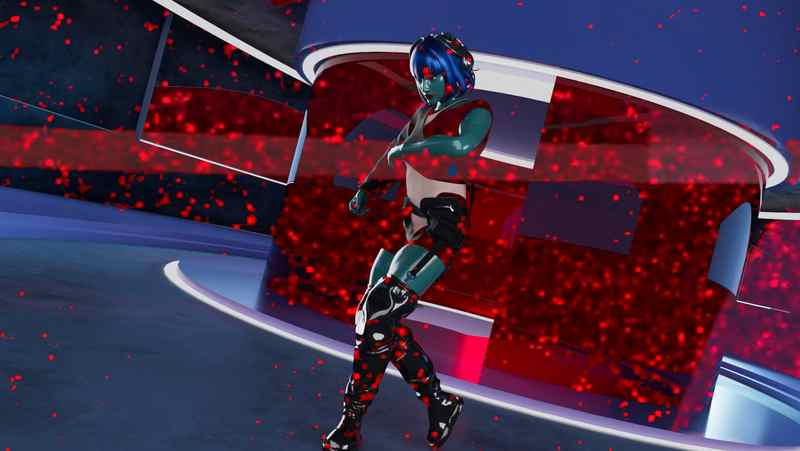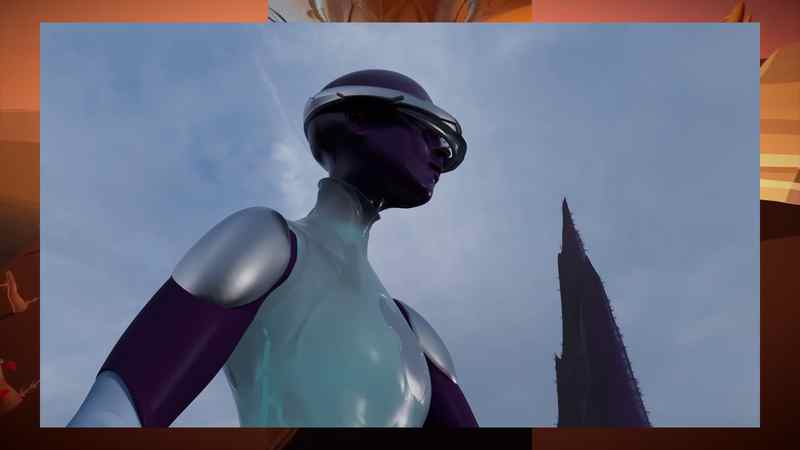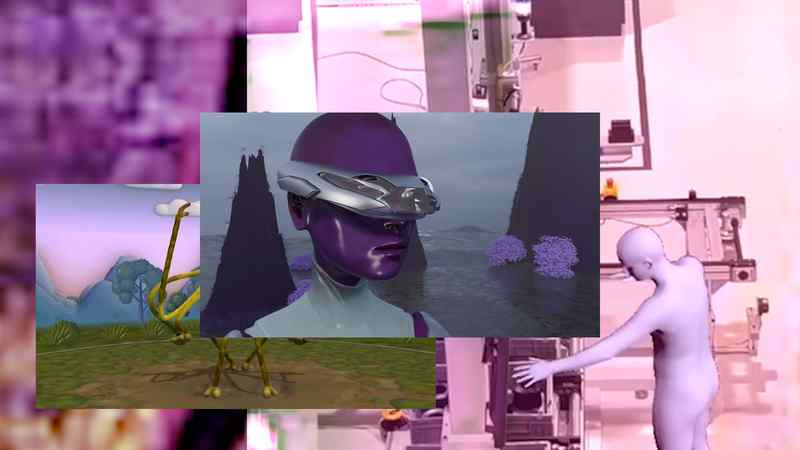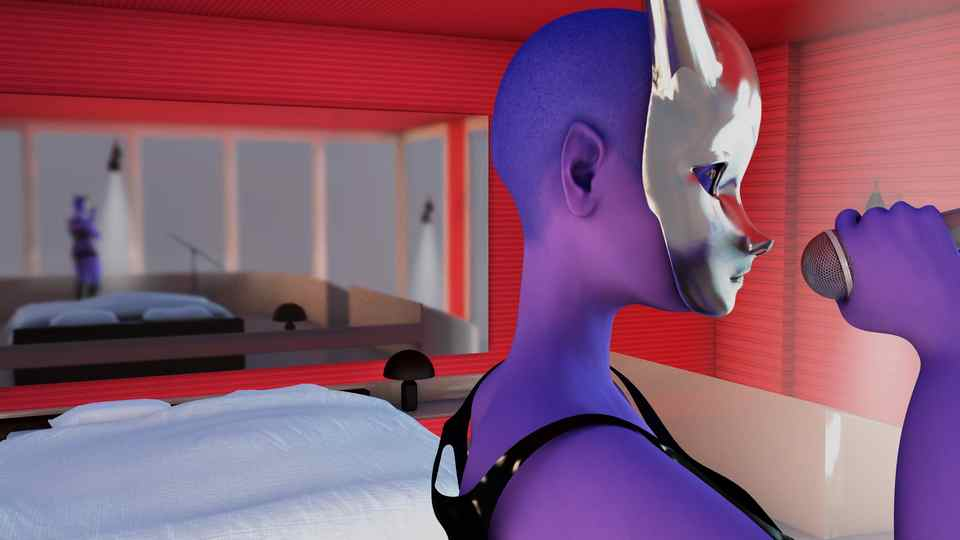Johanna Bruckner
—
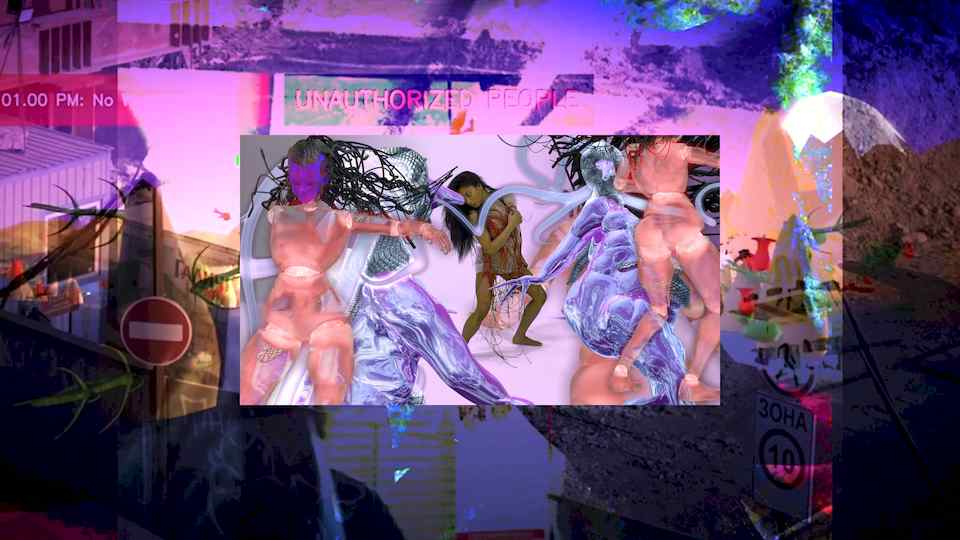
Johanna Bruckner, Entropic Clonography
Plants crawling across the floor like tentacles, their glass surface refracting the artificial light, a video screen amidst the inorganic garden. On-screen, dynamic overlays of found footage and computer-generated sequences are populated by fantastic creatures that travel across time and space, transgressing their respective points of origin. By way of her fictional image worlds, artist Johanna Bruckner explores intimacy, hybrid life forms, and models of care beyond binary systems. Through the lens of biopolitics, ecology, queer theory, and posthumanism, she exposes fallacies and biases, replacing them with more complex, pluralistic narratives. Accordingly, the new multimedia work Entropic Clonography evolves around solar energy, situating the study thereof between cartographic history, algorithmic governance, and poetic speculation. In the exhibition, moving images, plastic sculptures, and performing bodies probe human and non-human co-existence, therein questioning agency and existing sustainability practices. In the Anthropocene, the human body itself turns into an interface for geo-engineering – and the disassembling and reconstructing of organic life as we know it begins.
About the artist
Johanna Bruckner's work is characterised by a multimedia approach in which the performance of the human body plays a predominant role. In her installations that formally present a combination of technological machinery and organic bodies, videos generated with computer graphic software regularly appear accompanied by sound compositions. The artist deals with themes related to biopolitics, feminism, queer cultures, and posthumanism. Collaborating with dancers and performers was initially a way for Bruckner to explore issues related to the working body, work as performativity and social construct, developing hypotheses to imagine alternatives to social norms. In her more recent works, the artist further develops her experiments with social bonds, including imagery associated with queer intimacy and intra-species relations. Inspired by molecular biology, quantum physics, and studies of hybrid life forms, Bruckner contributes through her works to a discourse that seeks to promote an ecology of care and trust, to help build a world in which human and non-human beings cohabit more positively with the environment and the technologies that inhabit it beyond binary regimes. Her work asks how the indeterminacy of being, today, might inform hybrid temporalities better tooled to deal with current technological, political and ecological changes.
Bruckner was born in Vienna (Austria) in 1984. She studied fine arts, cultural studies and social anthropology in Vienna, Berlin, New York, Stockholm and Hamburg. Her works have been shown internationally at House of Electronic Arts Basel (HEK), the Schirn Kunsthalle Frankfurt, the 57th Venice Biennale, the Haus der Kulturen der Welt Berlin, the transmediale, the ZKM, Zentrum für Kunst und Medien, Karlsruhe, Deichtorhallen Hamburg and the CAC Centre d'Art Contemporain Geneva, among others. She currently holds the CERN fellowship at Arts at CERN. She received the Recognition Award for Fine Arts of Lower Austria, 2020, the re:humanism Prize for Art & Artificial Intelligence, 2021, and most recently, the Pax Art Award, the Erste Bank MehrWERT Kunstpreis, and the Medienkunstpreis der Stadt Wien, 2022. She has taught at various universities.
Credits
With the support of Creative Europe Programme of the European Union, through the European Media Art Platform.

Disclaimer:
This work was produced with the financial assistance of the European Union. The views expressed herein can in no way be taken to reflect the official opinion of the European Union
Credits video images: Autoclonography, production still, 2024, Johanna Bruckner
